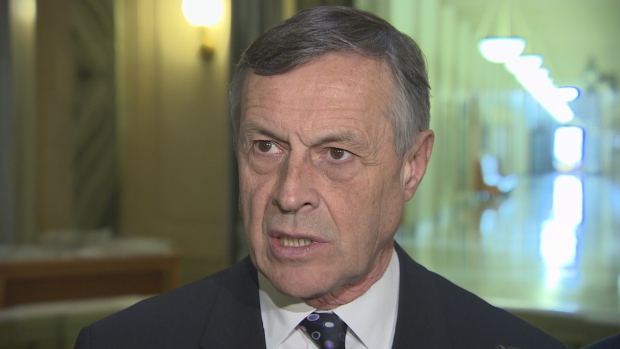Por: Lidia Falcón
El ministro de Hacienda ha presentado los Presupuestos para este ya comenzado año. Un trámite que parece pactado con sus socios de ideología y de intereses económicos, y que temo que a las mujeres, y ni siquiera a las feministas, les ha interesado.
Los presupuestos, sean del Estado o de las comunidades, se componen de una larga lista de cifras, por partidas varias, que repasarla para averiguar de qué manera el gobierno piensa fastidiar a las mujeres, y naturalmente a los niños y a las niñas, cuyo destino va unido indisolublemente al de ellas, hace falta la formación de una economista, o al menos de una contable, el criterio de una feminista y la paciencia de una revolucionaria.
Porque ellos, los Presupuestos, son el pan de cada día, la calefacción del invierno y la refrigeración del verano, la escuela del hijo y la residencia del abuelo, los zapatos de los niños y las medicinas del padre. Aunque el común de los mortales no lo sepa, porque para eso se encargan de ocultarlo la escuela, la televisión, los comentaristas habituales y los políticos que transmiten la ideología dominante.
Y son también el sustento de las madres que no pueden trabajar porque no tienen escuelas infantiles para sus retoños, la supervivencia para las maltratadas, la justicia para las violadas y para los niños abusados, el salario para las trabajadoras y las pensiones para las viejas.
Pues bien, esas cuentas de las que depende nuestra vida se han pergeñado por el gobierno de la manera siguiente:
Plantean un ajuste de 14.250 millones de euros para cumplir con el objetivo de déficit del 3,1% que exige Bruselas. Para las personas no familiarizadas con el abstruso lenguaje económico con el que los economistas nos engañan, significa, en román paladín, que nos quitan esa astronómica cantidad de las inversiones que tendrían que realizarse en educación, sanidad, servicios sociales, dependencia, carreteras, transportes, agricultura, etc.etc.
El Gobierno presume de que el 45% del gasto total se destina a las pensiones y otras prestaciones sociales, pero este porcentaje, que puede animar a las optimistas, no dice que dado el poco ingreso por las cotizaciones sociales –empleos precarios, bajas cotizaciones, trabajadores exentos del IRP por sus míseros salarios- no significa cubrir las necesidades que tenemos. Piensen que los gastos de personal del Estado sufren un descenso del 1,6%, y eso que incluye un aumento del sueldo de los funcionarios del 1%. Como ven, se detraerá dinero de los contratados, o simplemente no se contratará ni se cubrirán las bajas por defunción o jubilación.
De modo que no dispondremos del personal necesario de los servicios esenciales, sanidad, educación, atención al público, fuerzas y cuerpos de Seguridad del Estado. De modo que las madres vayan olvidando tener jardín de infancia público para sus niños y las maltratadas atención especializada en la policía, los juzgados y las casas de acogida.
Y todos y todas preparémonos para que los transportes nos proporcionen la pesadilla de los retrasos, las averías, los atascos porque las inversiones en el sector ferroviario, puertos y obras hidráulicas desciende el 20%, con un desplome en el sector ferroviario del 29% en el ferrocarril. La cifra de obra pública marca un mínimo histórico desde que existen series comparables, y supone una tercera parte de lo que se invertía en años anteriores a la crisis.
Justicia, ese poder que afecta tan fundamentalmente a las mujeres y los niños, a los que debe prevenir y defender de las múltiples agresiones y violencias que sufren, se beneficia de un incremento del 7,6%. Pero que las víctimas no se alegren prematuramente. Como explica el gobierno, este aumento corresponde a la necesidad de “una justicia fuerte en su independencia e implacable en la lucha contra la corrupción”. Como ven el gobierno no considera necesaria una justicia” implacable en la lucha contra la violencia machista”. España tiene la mitad de jueces, 12,5 por cada 100.000 habitantes que la media de la UE, cuenta en la que entran, entre otros, Letonia y Grecia a la baja, porque la ratio de Alemania es tres veces mayor que la de España. De modo que olvídense de más juzgados de violencia machista con personal especializado en esta materia.
Para Educación aumenta un 1,7%, pero se gastarán 500 millones de euros menos que en los años previos a la crisis. No creemos que de ni para más escuelas infantiles ni para proporcionar enseñanza de feminismo en la primaria y la secundaria, a pesar de que desde hace tiempo todas las instituciones alarman sobre el aumento de la violencia machista en la escuela. En total, el gasto global previsto para Educación representa el 0,7% del presupuesto.
¡Menos mal que se atiende a la demanda de investigación y desarrollo, en becas o complemento salarial para los jóvenes! ¡Y se alza el gasto el 0,3%!
Las medidas para impulsar la igualdad entre hombres y mujeres se congelan en la misma cantidad que en 2016. Todas las reclamaciones, denuncias, escritos, artículos, demandas, declaraciones de la ONU, estadísticas comparativas con países desarrollados que avergüenzan al nuestro, no han logrado emocionar a nuestros gobernantes. Nada para igualar el salario de las mujeres con el de los hombres, cuya reclamación lleva 220 años, nada para igualar las pensiones de las mujeres con las de los hombres, nada para igualar la proporción de mujeres con las de los hombres en los puestos de dirección y administración de las empresas públicas y privadas.
Y mucho menos para erradicar la prostitución, perseguir eficazmente la trata de personas, impedir el tráfico de niños y niñas, vigilar el cumplimiento de la prohibición de alquilar úteros femeninos. Esas incómodas situaciones que sólo afectan a las mujeres y los menores y por tanto no tienen importancia.
Las ayudas sociales para la familia, contra la pobreza infantil (la de adultos no conmueve) recibirán 100 millones más, que son 100 millones menos de lo presupuestado para 2011. Las ayudas a las personas mayores se congelan en las del año pasado y las de los discapacitados pierden el 4,3%, lo que significa que más mujeres tendrán que atender a sus hijos y a sus padres inválidos.
Una chuscada que nos proporciona este gobierno tan castizo: el IVA de las fiestas taurinas desciende al 10%, mientras el del cine se mantiene en el 21%.
Pero la broma más macabra, más siniestra, más desvergonzada de este gobierno, dedicado a administrar la infamia, es que el presupuesto de Defensa asciende el 32%. Este ascenso de disponibilidad para pagar los Programas Especiales de Armamento –grandes sistemas de armas como el avión de combate Eurofighter, las fragatas F-100 o el carro de combate Leopardo- distorsiona todo el capítulo de inversiones reales del Estado, que sobre el papel crece un 46,8%, cuando en realidad se reduce un 3,3%.
Para fabricar armas, para aumentar el arsenal de la muerte y el de las personas dedicadas a matar, hay dinero. Para la vida: la atención a la salud, la educación, la cultura, el bienestar de las personas, no.
El triunfo del machismo se plasma desafiante en estos Presupuestos.
Fuente: http://blogs.publico.es/lidia-falcon/2017/04/06/los-presupuestos-del-machismo-2/














 Users Today : 68
Users Today : 68 Total Users : 35460199
Total Users : 35460199 Views Today : 95
Views Today : 95 Total views : 3418878
Total views : 3418878